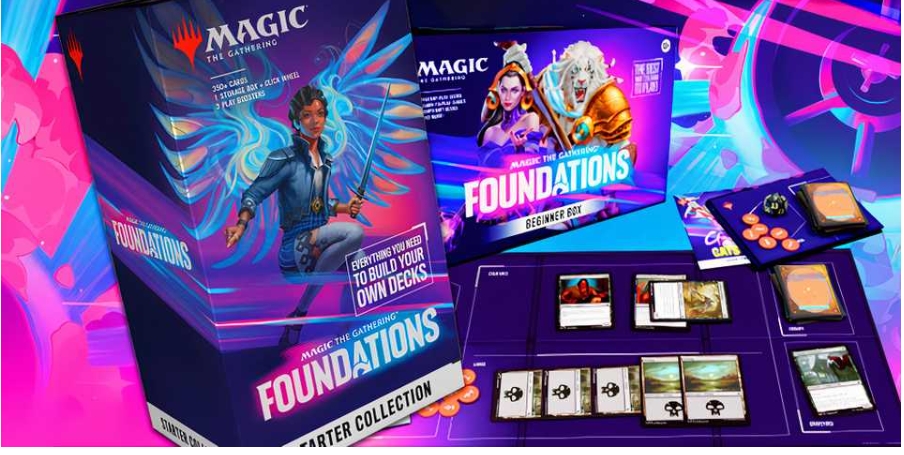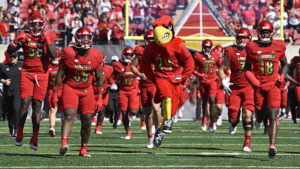
Magic: The Gathering’s Commander was announced dead,a sorrowful news
Magic: The Gathering’s Commander was announced dead,a sorrowful news
Magic: The Gathering’s Commander was announced dead,a sorrowful news

Format Likely Getting a Video Game: What It Could Mean for Fans and Players
Magic: The Gathering has long been a pioneer in the world of trading card games, consistently introducing new formats, cards, and experiences that keep its player base engaged. One of the most beloved and influential formats within the Magic community is Commander—a multiplayer-focused, singleton format that allows players to create decks around legendary creatures or planeswalkers and enjoy a fun, high-stakes experience with friends. As of late, there’s been a lot of buzz about Magic: The Gathering’s Commander format potentially getting its own dedicated video game, a project that could be a massive development for both Magic fans and gamers.
While details remain sparse and the project has not been officially confirmed by Wizards of the Coast, the possibility of a Commander-specific video game presents numerous exciting prospects. In this article, we’ll explore how such a game might work, the challenges it would face, and what it could mean for the future of Magic: The Gathering and its passionate player base.
What is Commander?
Before delving into how a Commander video game might work, it’s important to understand what makes the Commander format so unique. Commander is a casual, multiplayer format that revolves around deck-building creativity and strategy. Each player starts with a Commander, a legendary creature or planeswalker, who serves as the centerpiece of their deck. The deck consists of 100 cards, and crucially, no two cards in a deck can be the same (except for basic lands). This singleton nature fosters unique and highly personalized deck designs, where players are encouraged to create thematic decks around their chosen Commander.
One of the key elements of Commander is its multiplayer nature, where games often involve four or more players battling it out for supremacy. The format typically sees larger, more complex games, often lasting longer than traditional 1v1 formats, which makes it a favorite for players who enjoy slower, more interaction-heavy gameplay. The communal experience, where players can form alliances, build their decks around synergies, and showcase creativity, is what makes Commander stand out from other formats.
Why a Commander Video Game?
Magic: The Gathering has been digitally expanding its presence for years. The digital platform Magic: The Gathering Arena has introduced a faster, streamlined experience of Magic, especially for competitive play. MTG Arena focuses mostly on traditional formats like Standard, Historic, and Draft, while its experience of 1v1 matches is well-suited to those formats.
However, Commander’s multiplayer focus and emphasis on unique decks presents challenges for translating it into a video game. Players often create their own synergies and unique strategies, and games can be lengthy, with players interacting on multiple levels. That said, the potential of a Commander-specific video game opens up an exciting new chapter for Magic’s digital future, especially considering the growing popularity of Commander in both physical and digital play.
The Appeal of Commander for a Video Game
1. The Multitude of Decks: The core appeal of Commander is the vast range of decks players can create. From fun tribal synergies (like Goblins, Vampires, or Dragons) to highly intricate combo decks, Commander offers an unmatched level of creativity. A digital game could capitalize on this by providing a huge variety of pre-built and customizable decks, allowing players to experiment with different strategies in a low-risk setting.
2. Multiplayer Dynamics: The multiplayer aspect of Commander is one of its most unique features. Unlike traditional formats, Commander games usually involve three to four players. In a video game, this could translate into online multiplayer matches, where players team up or form alliances while trying to outwit their opponents. A Commander-specific video game could emphasize cooperative play, politics, and betrayal, making it a rich social experience.
3. Big, Epic Battles: Commander games often feature huge, dynamic battles where multiple planeswalkers, creatures, and spells are in play simultaneously. A video game could bring this to life with spectacular visuals—imagine giant, magical creatures clashing with one another, epic spells being cast across the battlefield, and game-changing moments that make each match feel like a truly memorable event.
4. Innovative Deck Building: Deck-building is an essential part of Commander. A video game could provide players with an easy-to-use deck builder that allows them to experiment with thousands of cards. Whether it’s legendary creatures, enchantments, instants, or planeswalkers, a Commander video game could allow players to design their own strategies, customize cards, and even experience the excitement of testing out new combos in a controlled digital environment.
Challenges for a Commander Video Game
While the concept of a Commander video game is enticing, there are a number of challenges that developers would have to navigate to make it successful.
1. Multiplayer Coordination: Commander is inherently a multiplayer experience, and translating this into a video game means addressing issues such as player coordination, online matchmaking, and player interaction. In traditional paper Commander games, players can freely chat, form alliances, and engage in politics, but replicating this aspect digitally while maintaining balance and fairness could be tricky. It would require intelligent AI to simulate social dynamics, as well as robust matchmaking to create enjoyable multiplayer experiences.
2. Complexity and Pace: Commander games tend to be much slower than traditional Magic matches due to the vast number of cards, interactions, and long turns. While this is part of what makes Commander fun in person, translating this to a video game where each match could take hours could be a difficult sell for more casual gamers. Developers would need to find ways to keep the game engaging and streamlined while still preserving the epic nature of Commander games.
3. Balancing Cards and Decks: The diversity of Commander decks—especially given the format’s singleton nature—presents a unique challenge when it comes to card balance. Magic is known for having a large number of cards that range from extremely powerful to niche or unplayable. It would be critical for a Commander video game to ensure that no particular combination of cards breaks the game or creates an unbalanced experience. Continuous updates would likely be necessary to keep the game fair and interesting.
4. Social Dynamics: One of Commander’s defining features is its social interaction. Players often negotiate, collaborate, and betray each other in the pursuit of victory. For a video game, replicating these dynamics will be challenging, especially when it comes to AI-controlled players. While some level of text or voice chat could help facilitate this, balancing the social dynamics without creating toxic or disruptive experiences will require careful thought and design.
What Would a Commander Video Game Look Like?
If a Commander video game were to come to fruition, it might take inspiration from other digital card games like Hearthstone and Legends of Runeterra, but with a focus on multiplayer formats and deck-building creativity.
1. A Deck Builder & Strategy Focus: The game would likely feature a robust deck-building interface that allows players to customize and experiment with their collections of cards. This could include access to a vast library of cards from across Magic’s history, as well as exclusive digital-only cards or sets.
2. Multiplayer Experience: As a primarily multiplayer format, the game would likely feature online matchmaking for 2v2, 3v3, or even 4v4 matches. Players would be able to build and battle with their friends or against other players around the world. The game could allow for a wide range of formats, from casual casual to competitive, with the ability to engage in politics, alliances, and backstabbing.
3. Spectacular Visuals: Given the scale of Commander games, a digital adaptation could allow for highly dynamic animations, showing off epic creature battles and legendary planeswalker duels. Think of vibrant visual effects that bring spells and abilities to life in new and immersive ways.
4. AI-Controlled Opponents: The game would likely include both solo modes for practicing or experimenting with different decks and AI-controlled opponents with different difficulty levels. This would help players develop their strategies before jumping into competitive online games.
Conclusion
A Commander-specific video game would be a revolutionary step for Magic: The Gathering, bringing the multiplayer format’s strategic depth and social interaction to the digital realm in a new way. While the challenges are considerable—particularly around multiplayer balance and the game’s pace—the potential for creating a deeply immersive experience is exciting. It would allow players to live out the dream of playing Magic at a massive scale, with all the creativity, politics, and strategy that Commander decks embody. Whether it’s played casually with friends





